No to Corruption in Business (Online Module)
Global Compact against Corruption. OECD Convention. ICC Anti-corruption Clause (4 ECTS,  )
)
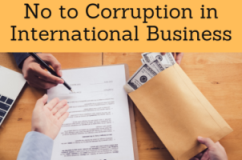
Corruption is one of the worst scourges of our society, affecting both public and private sector, its effects are devastating: can overthrow countries, distort the market, financing wars, limit aid development, erode democracy and human rights, limiting investments, or encourage organized crime.
Organizations that fight against corruption (the UN - Global Compact, Transparency International, World Economic Forum, or the International Chamber of Commerce) estimates that, globally, corruption could account for 5% of global GDP (2.6 trillion dollars).
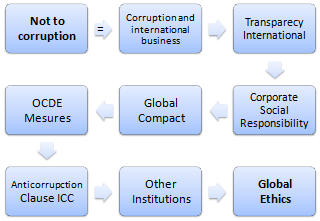
The Subjects of the Module “No to Corruption in International Business” offered by EENI Global Business School are the following:
- Corruption and International Business
- The Role of Transparency International
- Introduction to Corporate Social Responsibility
- Global Compact of the UN. The UN Convention against Corruption
- OECD Anti-corruption Measures
- Anti-corruption Clause of the International Chamber of Commerce
- African Union Convention on Preventing and Combating Corruption
- Other institutions and initiatives related to fight against international corruption
- Introduction to Global Ethics - the two fundamental principles:
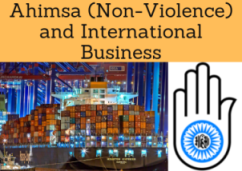


- Credits : 4

- Duration: 1 month It is recommended to dedicate about twelve hours of study per week following a flexible schedule. It is possible to reduce the duration dedicating more hours a week
- Download the syllabus of the Course “No to Corruption” (PDF)
- Global Ethics (PDF)
Languages:  (or
(or  No a la Corrupción
No a la Corrupción  Non à la corruption
Non à la corruption  Não à corrupção). The student has free access to the course materials in these languages (free multilingual training).
Não à corrupção). The student has free access to the course materials in these languages (free multilingual training).

- To raise awareness about terrible effects of corruption
- To analyze the causes of corruption in International Business
- To learn about the tools that a company can implement to fight against corruption
Intended for all those related to International Trade and business, as well as public and private institutions, who wish to eradicate corruption in International Business.
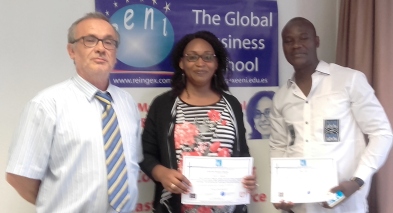
Students who have taken this course can validate and register for a Master or Doctorate at EENI.
This Professional Course is also part of all Master's Programs and Doctorate:
- Infant mortality would drop by 75%
- 5% of the World's GDP (between 1 and 1.6 trillion dollars)
- Global Business would grow up to 3% faster
- Adds up to 10% to the total cost of doing business globally
- Near 25% of the final cost of public procurement
“Corruption cannot be tackled only with legal instruments; it needs to be complemented with a strong ethical principles.” Pedro Nonell (EENI Global Business School Director)
EENI Commitment to Society “Programme: Combating corruption in International Business.” Global Ethics, business, and religion.
“Professional Course - No to Corruption”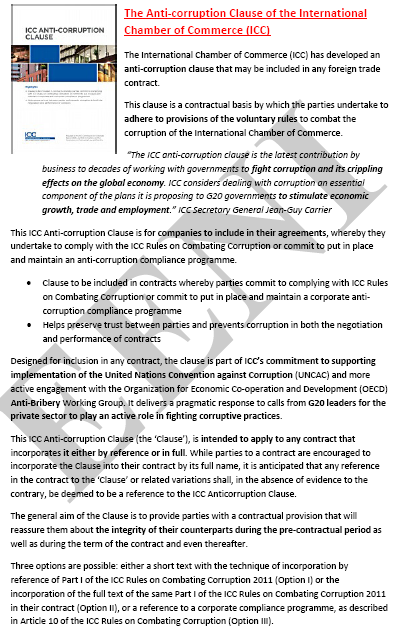
“Corruption undermines democracy and rule of law. It leads to the violation of human rights. It erodes the public trust in the Government. Corruption can even kill.” Ban Ki-Moon, UN Former Secretary-General.
WB estimates that the annual global cost of corruption, that is, what it costs to all citizens of the World; it is between $ 1 trillion and $ 1.6 trillion.
According to WB, the countries that effectively fight against corruption can reach quadrupling its national income, business would grow up to 3% faster, and infant mortality would drop by 75%.
Corruption adds up to 10% to the total cost of doing business globally.
Every year the EU loses 1% of its GDP (120,000 million Euros) for corruption effects.
- 78% of the citizens of EU believe that the most serious problem in his country is corruption
- According to Transparency International, 5% of the people of EU has paid some type of bribery
- The NISPA estimated that corruption could rise between 20% and 25% the final cost of public procurement
- The European Union recognizes that his “Member States are not entirely prepared to fight against corruption for themselves”
Corruption is implicit with Civilization, but in this phase of globalization and digitalization of the economy, instead of being able to find ways and mechanisms that can override it, corruption has not stopped growing.
There are many initiatives to fight against corruption: UN, OECD, EU, or the African Union. All these institutions are developing ethical codes that seek to alleviate corruption. However, the reality is that despite these mechanisms, most of them volunteers, corruption has not been able to be eliminated.
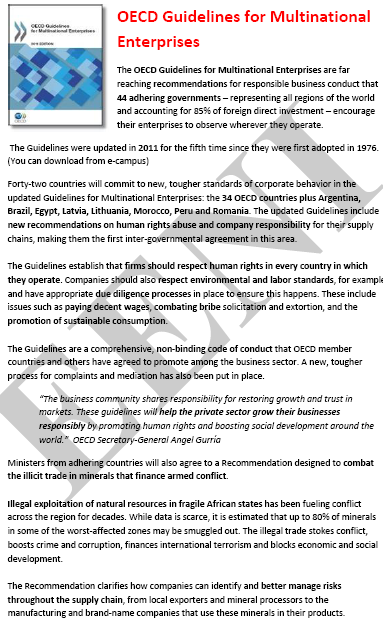
- In Africa, Strive Masiyiwa is one of the persons who are leading fight against corruption
Developing such codes is necessary but not sufficient:
Ethics and legal instruments will be undoubtedly the foundations that will allow us to eradicate the corruption.
“Corruption is not inevitable. It flows from the greed and triumph of the undemocratic minority over the expectations of the majority” Ban Ki-moon former Secretary-General of the UN.
(c) EENI Global Business School (1995-2025)
Top of this page










 WhatsApp
WhatsApp